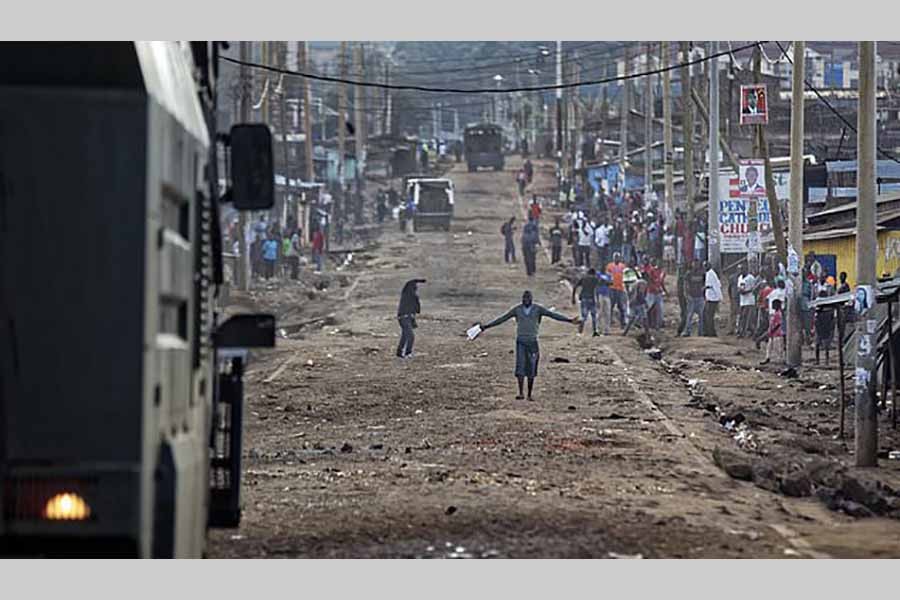Kenya’s opposition dominated areas were calmer on Saturday, a day after voting was postponed in four restive counties because of clashes between police and protesters.
It was not clear when the presidential election, a rerun of the flawed vote in August, would be over.
The streets of Kisumu, an opposition stronghold, as well as several Nairobi slums were largely quiet, though police used tear gas to disperse crowds in Kawangware slum.
However, political uncertainty persists after opposition leader Raila Odinga boycotted the repeat election on Thursday, reports AP.
The election commission delayed voting in four out of Kenya's 47 counties until Saturday because of violence. The new postponement is "until further notice" because of concerns for election workers' safety.
The Supreme Court nullified the August 8 vote because of irregularities - the first time a court in Africa had overturned a presidential election. Odinga, whose legal challenge led to the ruling, withdrew from the new election, saying the process was not credible because of the lack of electoral reforms.
At least six people have died in violence linked to the latest vote, including a man who was shot and killed in Kawangware as security forces moved to quell fighting between gangs from different ethnic groups late Friday.
On Saturday afternoon in Kawangware, young men taunted the police and ran for cover. Many support Odinga.
"I don't see this ending soon," said one supporter, Paul Maumo. He accused the election commission of staging a fraudulent vote.
Many observers say Kenya's ethnic-based politics overshadow the promise of its democracy. President Uhuru Kenyatta, who got 54 per cent of the vote in August, is from the Kikuyu community. Odinga, who got nearly 45 per cent in the earlier election, is a Luo.
Thursday's vote had a sharply lower turnout because of the opposition boycott. About 6.5 million people, or one-third of registered voters, went to the polls, according to the election commission. Nearly 80 percent of registered voters participated in August.
Some Kenyans have raised concerns about the way Thursday's election was conducted. The electoral commission announced that 35,564 polling stations opened on voting day, but the commission chairman later tweeted they had received results forms from 36,796 polling stations.
Commission spokesman Andrew Limo said some electronic transmission kits fail to send a signal to show the polling station has opened but still transmit results. The commission has stopped updating results that were transmitted electronically and will announce only the final ones, he said.
International election observers had a much lower profile in Thursday's election, reflecting their concern about opposition hostility toward their generally positive reviews of voting day in August. Observers had urged anyone with grievances to address them through legal channels.
Acting on behalf of the African Union, former South African President Thabo Mbeki was the only high-profile election observer during Thursday's vote. Former U.S. Secretary of State John Kerry, who was in Kenya in August as an observer for The Carter Center, did not return this time.
Odinga and Kenyatta also faced off in a 2013 election similarly marred by opposition allegations of vote-rigging. The opposition leader also ran unsuccessfully in 2007, and ethnic-fueled animosity after that vote killed more than 1,000 people and forced 600,000 from their homes.


